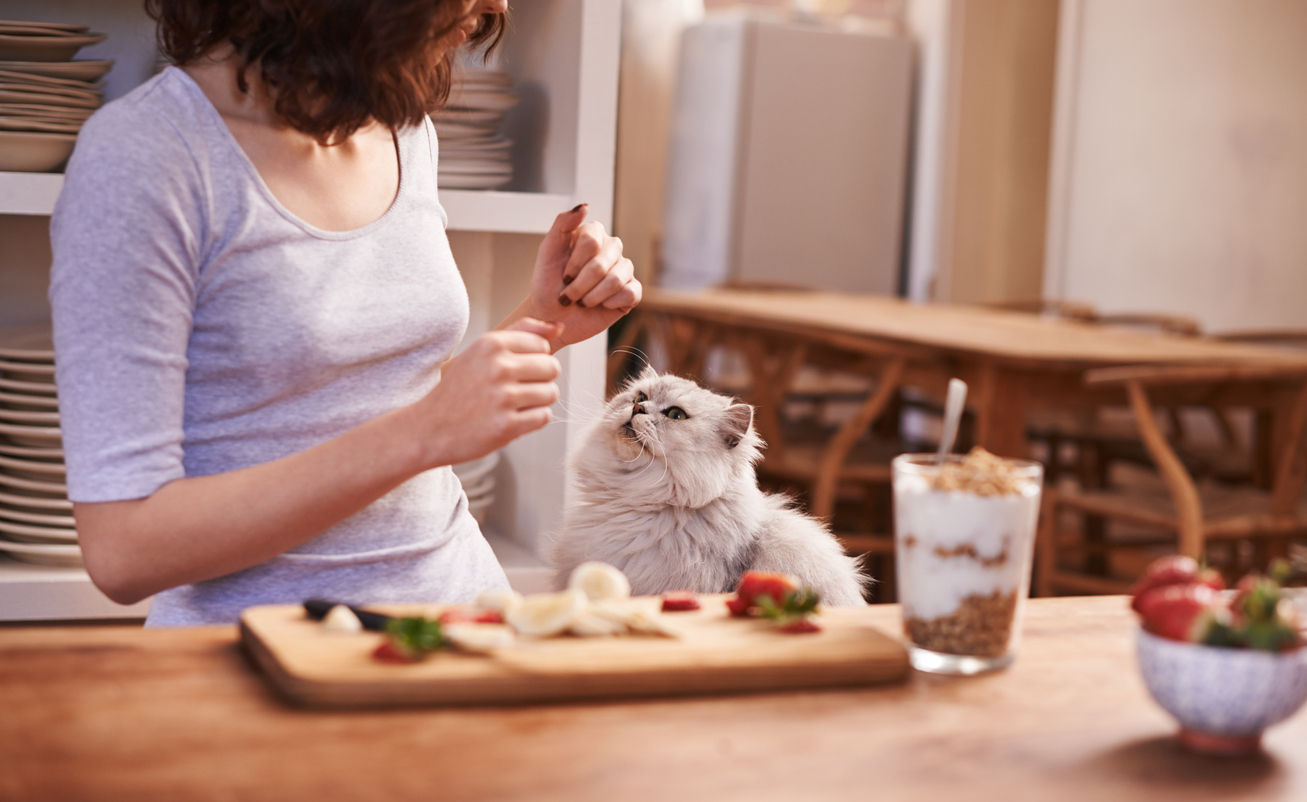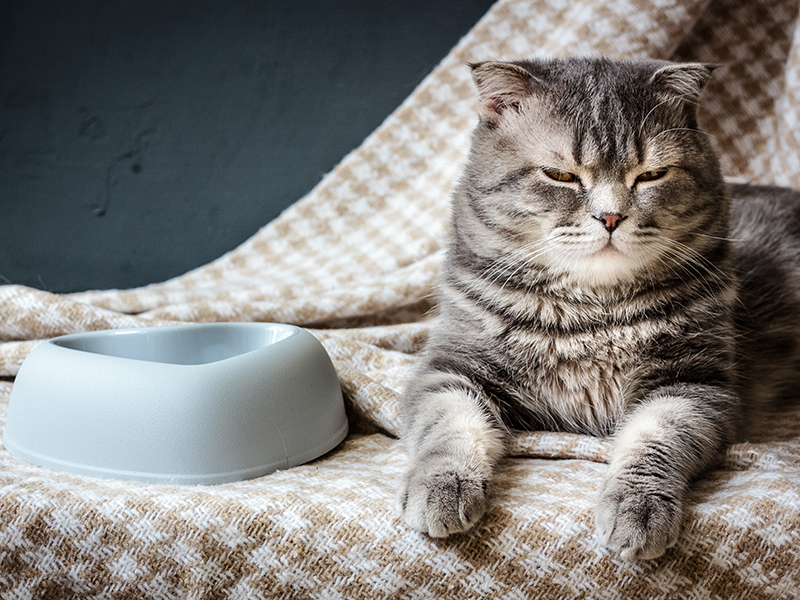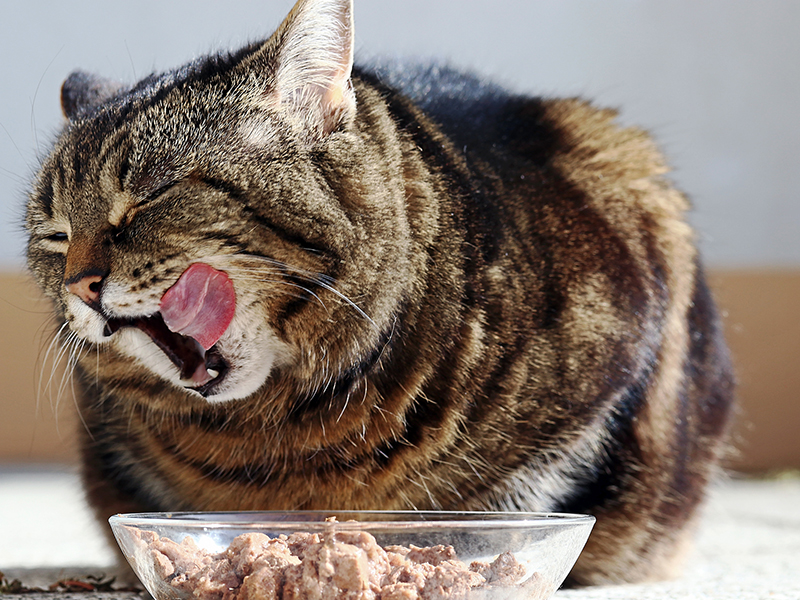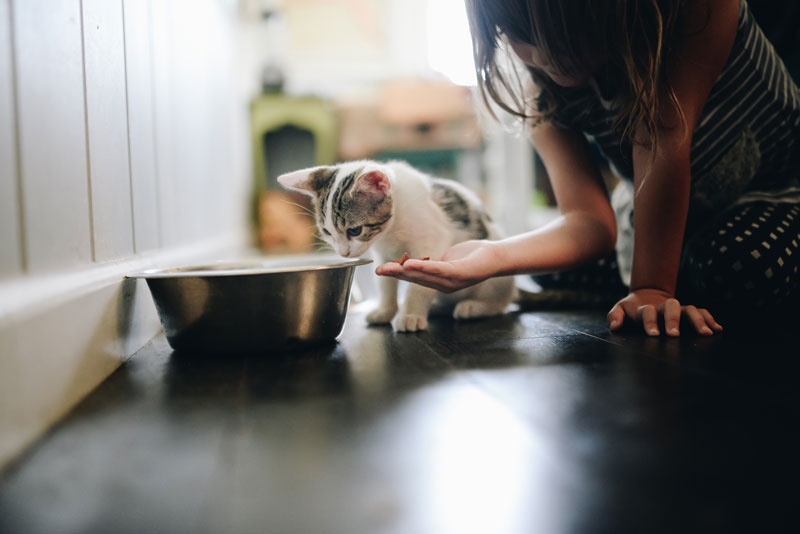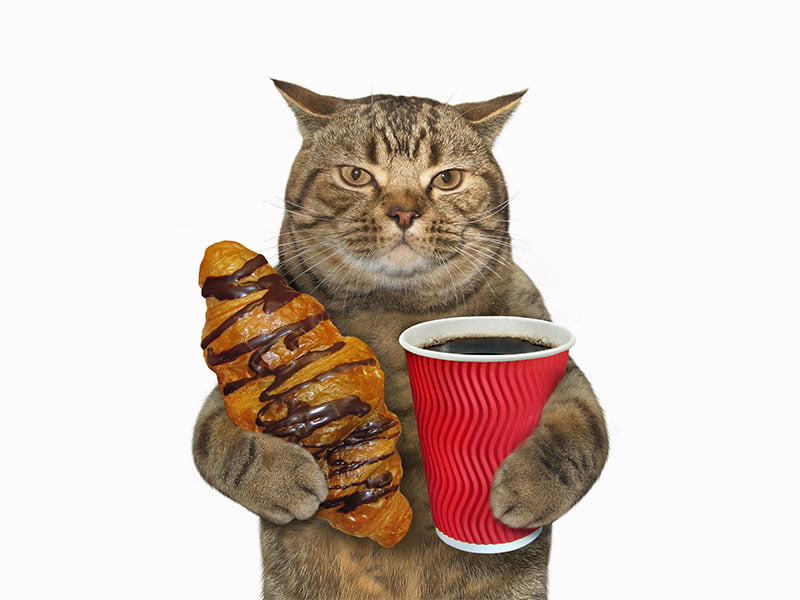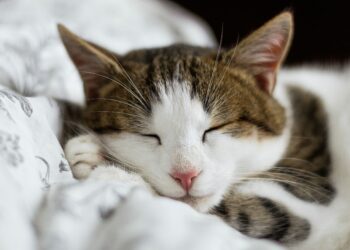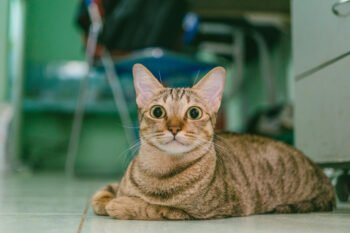[the_ad id=’18809′]
Ever wonder whether you’re feeding your cat the right food? The proof might be purring at your feet right now. Even if you conscientiously scour pet food labels and do your research, your own cat can offer the best evidence of the nutritional value of the food you dish out.
Although diet is among many factors affecting your cat’s health, appearance and behavior, feeding your feline a high-quality meal is an essential and wise move. Here are seven signs your cat is thriving on a well-balanced, nutritious cat food:
- A shiny coat Your cat’s coat should be plush and shiny, says Dr. Margie Scherk, DVM, DABVP (feline), a past president of the American Association of Feline Practitioners and editor of the Journal of Feline Medicine and Surgery. “Matting or flaking are suggestive of poor dental health, arthritic pain or poor nutrition,’’ says Dr. Scherk.Lack of protein can be the culprit. Dr. Judy Karnia, DVM, who runs a cat clinic in Scottsdale, Ariz., sometimes sees cats that aren’t getting enough of this essential nutrient. Your pal’s healthy coat depends on adequate protein levels. “You definitely want to make sure you’re feeding a good brand of cat food with good protein levels,’’ says Dr. Karnia. Look for crude protein levels of at least 30 percent in dry food and 8 percent in wet food. You may find protein levels and other nutritional information listed under words like “Guaranteed Analysis” on the cat food label.
- Good teeth and gums “Good dental health includes not just having strong, white teeth but also — and arguably more important — healthy, moist, pink gums that cover the roots of those teeth without bleeding or excess gum tissue,’’ Dr. Scherk says. You should lift the lip at the back of your cat’s mouth at least once a month to check its dental health. Dry food may help some cats in keeping the tips of their teeth clean, says Scherk.
- Digestion and hairball care There’s no polite way to say this: You can tell a lot about your cat’s diet when you scoop the poop. Look for moist, formed “logs” with a “pungent odor that is neither sour nor excessive,’’ advises Dr. Scherk.If your cat produces pellets or small pieces instead of logs, your furry friend might be dehydrated. Your veterinarian can help return your cat to normal hydration, says Dr. Scherk. Switching to canned cat food, adding water to your cat’s food or offering a water fountain are options to help your cat get the water it needs. If your cat’s poop is too soft or watery, visit your veterinarian. Loose poop could be a sign of digestion problems, food intolerance, inflammation, infection or even a serious illness, such as cancer. If your pal is prone to hairballs, paying attention to diet is particularly important. Special hairball formula cat foods offer fiber that helps move the hair along the digestive tract. A healthy diet also means your cat isn’t as prone to shedding as much fur.
- A healthy weight Like many veterinarians, Dr. Karnia sees far too many kitties carrying excess baggage. If your pal’s belly sways with each step, you need to re-evaluate your cat’s diet and caloric intake.“You should be able to feel the ribs, but they shouldn’t stick out,” Dr. Karnia says. “There shouldn’t be a big bag hanging down under the belly. Look from the top. Your cat should have an hourglass figure from the top.” Your veterinarian can help you learn to count calories so that your cat maintains the proper weight. Your veterinarian might recommend that you feed your cat a food designed for weight management or for older cats, which are often less active and burn fewer calories.
- A strong immune system If your cat eats a complete and balanced diet, your pal is more likely to fight off illnesses. Veterinary nutritionists are researching the role antioxidants might play in promoting a healthy immune system in cats, as they do in humans, says Dr. Scherk. You’ll find Vitamin E and antioxidants from sources such as tomatoes and spinach in some commercial cat foods, particularly those that emphasize natural ingredients. “If your cat is healthy, it’s probably because it’s getting good nutrition,” Dr. Karnia says.
- Strong bones Just like you, your cat needs calcium to form strong bones and teeth. Sometimes, devoted cat owners who try to feed their cats a homemade diet make the unfortunate mistake of not providing bone meal, says Dr. Scherk. This can lead to bone fractures.If a problem is suspected, your veterinarian can use X-rays to evaluate your cat’s bone density. A well-formulated cat food will include calcium, so look for it on the label of your pet’s food.
- A healthy heart Diet plays a critical role in your cat’s heart health. For instance, feeding your pal table scraps rather than a well-balanced, nutritious commercial food can lead to a deficiency of taurine, a critical amino acid. Taurine deficiency can lead to heart problems and even heart failure, but a nutritious commercial food will include taurine. A veterinarian can also monitor your cat’s heart health to make sure it’s in ticktock shape.If you can check off a “yes” for these seven vital signs, your cat is probably enjoying the food you provide and is likely energetic, playful and moving well. Your wise choices about cat food mean your feline is probably also in good condition, says Scherk. Veterinarians routinely evaluate kitties to check for ample muscle tone, lean body mass and a healthy fat level, says Scherk. A healthy diet can contribute to these desirable attributes.
Karnia concludes, “If cats are healthy, it’s probably because they’re getting good nutrition.”

